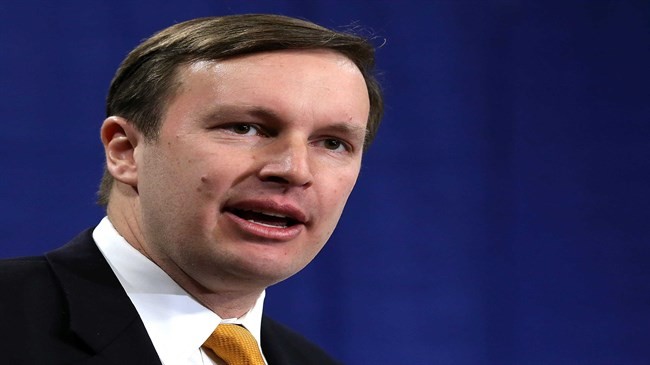Senator: US blind support for Saudis aiding extremism

An influential US senator has questioned Washington’s unwavering support for Saudi Arabia despite the regime’s backing of extremist ideology and its military offensive in Yemen.
"No one has a particularly credible long-term strategy [for the Middle East] because it would involve facing some very uncomfortable truths – about the nature of the fight ahead of us, and imperfections of one of our most important allies in the Middle East,” Senator Chris Murphy said in a speech at the Council on Foreign Relations in New York on Friday, The Huffington Post reported.
The carefully worded address pointed to Saudi Arabia's backing of extremists and its reckless military intervention in Yemen as evidence of the need to question unwavering US support for the kingdom.
“For all the positive aspects of our alliance with Saudi Arabia, there is another side to Saudi Arabia,” he said.
"And it is a side that we can no longer afford to ignore as our fight against extremism becomes more focused and more complicated," he added.
For decades, oil was the bedrock of the relationship between the United States and Saudi Arabia, two nations that share few common values.
Experts say the oil-based mutual dependency that goes back to the early 1930s is becoming increasingly irrelevant as American oil production is surging and the Saudi leadership is running into trouble.
For its relatively small population and weak military, Saudi Arabia has played a major role in US military interventions in the region, mainly because of its massive purchases of weapons from the United States.
The complicated alliance, Sen. Murphy, a Democrat from Connecticut, argued, has caused the United States to largely ignore the kingdom’s funding for extremist “Wahhabi, Salafist teachings”.
"Less-well-funded governments… can hardly keep up with the tsunami of money behind this export of intolerance," the senator said.
Relations with Saudi Arabia have become more complicated since the United States and five other countries, known as P5+1, reached a historic nuclear agreement with Iran in July, creating the perception that Riyadh might gradually be sidelined in the region.
"In the wake of the Iran nuclear agreement, there are many in Congress who would have the United States double down in our support for the Saudi side of this fight in places like Yemen and Syria, simply because Saudi Arabia is our named friend, and Iran is our named enemy,” Murphy said in his speech.
Since the Iran deal, Washington has approved several arms sales to Riyadh, worth billions of dollars, and continued to support the regime’s military assault in Yemen, which has claimed more than 8,000 lives.
Sen. Murphy argued that backing Saudi Arabia as a knee-jerk reaction rather than a calculated strategy is unsustainable in the long run.
“The Middle East doesn’t work like that anymore,” he said. “There is growing evidence our support for Saudi-led military campaigns in places like Yemen are prolonging humanitarian misery and aiding extremism.”